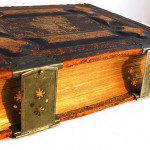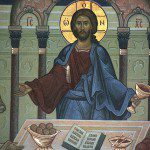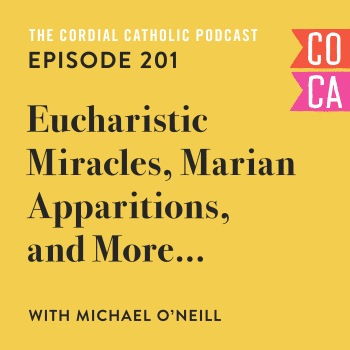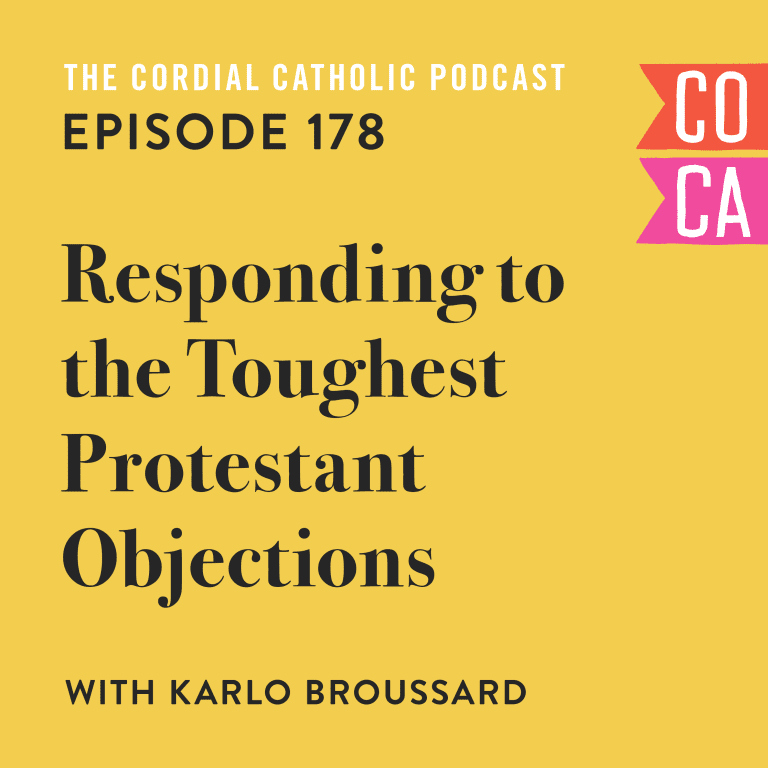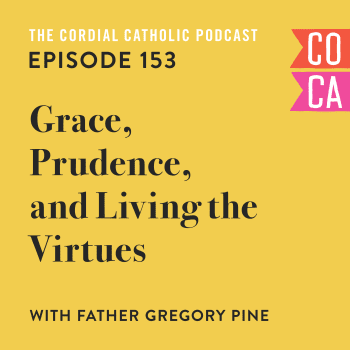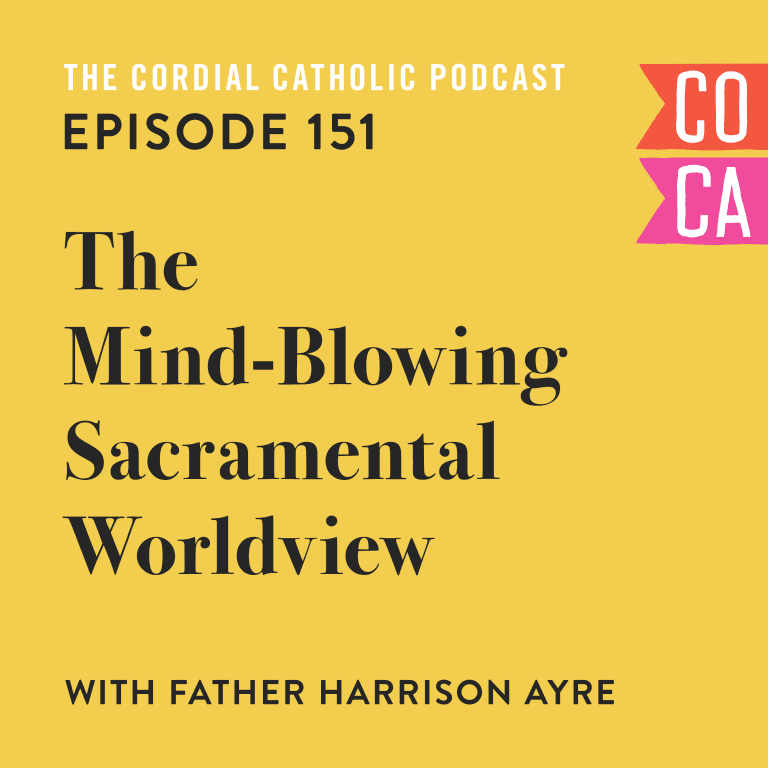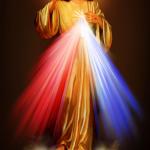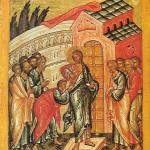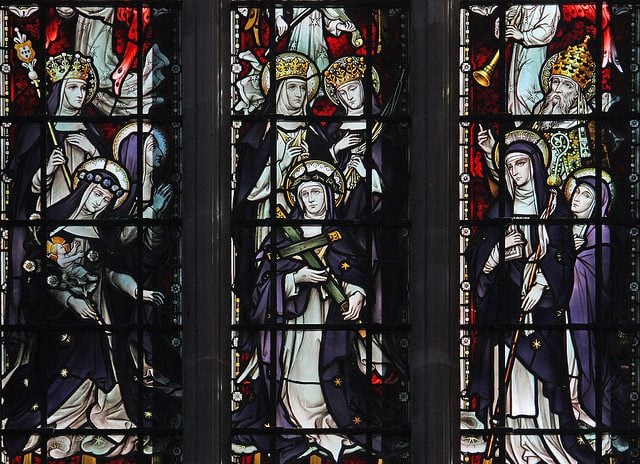
So I’ve been writing about my conversion experience and what’s been drawing me in to the Catholic Church and the bulk of it, in the beginning, was theological, historical, and intellectual.
It began with notions of sola scriptura, the Protestant belief of the Bible as the sole authority in the Christian’s life. For me, it fell apart, and I found the teaching authority of the Catholic Church to make a lot more sense. And the more I learned about the Catholic Church the more all of its teaching began to make sense—the more some of the unanswered (or inadequately answered) questions I had as a Protestant were soundly answered.
But it hasn’t been a merely intellectual exercise, and it hasn’t been merely negative aspects of Protestant that has driven me away from it.
In reality, there are far more positive, incredibly beautiful aspects of Catholicism that are drawing me in. This is a common experience in Protestant converts to the Catholic Church and it’s commonly described as finding a “hidden treasure,” much like the parable of the Pearl of Great Price. In the case of this post, and one of the first hidden treasures that I found, were the saints.
I don’t want to spend too much time explaining the theology of the saints, I’d like to go into that later, in a more in-depth post, but some needs to be said, upfront, to clear the air.
A common misconception, and one that I soundly held as a Protestant, was that Catholics pray to saints in the same way that they pray to God. An even worse misconception is that Catholics worship saints in the same way that they worship God. Neither of these is true. Do some confused Catholics pray to saints in the same way they would to God? Definitely, but what Catholic doctrine teaches is abundantly clear (and there are confused people in all religious practices).
In brief, the saints are deceased Christians who the Catholic Church has investigated and determined to be individuals whose lives pointed to Jesus Christ. Drawn from a tradition that dates back to the earliest Christian writings including the New Testament the Catholic Church has taught that those closest to God, in Heaven, can hear our prayers and pray for us.
What I came to understand as I began to explore Catholicism is that the Church believes itself to exist not just here and now on earth but with deep historical and spiritual roots. In other words, a follower of Jesus Christ, in Heaven, is still equally a part of the Church.
This is the Communion of Saints and this, to me, was an absolute hidden treasure to discover.
One f those nagging questions that I always had as a Protestant was what was meant by a passage like the one in Hebrews which refers to the saints in Heaven; the witnesses who look down on us as we run our race. As a Protestant it always sounded bizarre and all explanations fell flat. The Catholic explanation—an explanation with historical proofs clearly on its side—makes complete sense, to me, of what the inspired author of Hebrews was talking about.
The saints can pray for us because the saints, like any other Christian, exist right now in the Church, they are simply the Church in Heaven—but the same Church. This is the hidden treasure I discovered: That in the same way I can ask my friend Andrew to pray for me, I can ask a saint, in Heaven, to do the same.
As a Protestant I might send a quick e-mail to a friend, “Hey, I’m going through a difficult day at work can you pray for me?”
As a Catholic I can do the same but, likewise, I could also fire off a quick prayer, “St. Albert, pray for me and this difficult situation at work.”
I’m not praying for St. Albert to solve the problem for me, that’s the role of God, I’m asking St. Albert to pray for me the same way I’d ask my friend. Because the saints are equally part of the same Catholic church they can pray for me in the exact same way. The fundamental difference being, of course, that the saints are in Heaven and that’s a pretty big difference (although my friend Andrew is certainly heading there too).
I can’t stress enough how incredible it was, for me, to discover the hidden treasure of the Communion of the Saints. Here, suddenly before me, are scores and scores of saints. Holy men and women (more women than men!) who’ve lived before me and experienced life and tried their best to honour God. These are real people whose lives point to Christ who I can emulate; examples to boldly follow. Real men and women, surrounding us in a great cloud of witnesses, who we can ask to pray for us. Who John, in Revelation, records as surrounding God and praying to him in his glimpse of Heaven. What kind of incredible, immediate access to prayer power is that?
As a teenager in the Pentecostal church in Southern Ontario I went to a few youth conventions. These conventions were, in every sense of the word, epic and when I think about the Communion of the Saints, and this beautifully rich teaching of the Catholic Church, I often think about those conventions. Imagine, as a teeanger, what it was like to have thousands of other young people fervently praying together in an amphitheatre—all praying for one intention. As an adult Protestant, first stumbling upon the Catholic notion of saints felt much the same. Suddenly, although they were there all along, here are more than 10,000 Christian saints who are ready and willing to pray for me, like friends.
And that’s what saints become, as funny as it sounds.
When I first heard it put that way, by a Catholic priest, I was genuinely bemused. I thought, how can I be friends with someone who never speaks back to me, who I don’t actually know. But what I’ve found, in the short time I’ve known about saints is that you can begin to know a saint and truly, really, develop a kind of kinship. As I learn about, and pray for help from St. Frances de Sales, a humble and soft spoken Catholic apologist priest who lived during the Reformation, I can begin to feel a bond develop. I ask for his prayers in particularly difficult times, or surrounding particular situations and he begins to feel familiar to me, and I begin to know him better.
The thing about saints is that all saints, with their lives and their prayers for us, point towards Jesus Christ, who is central. The Communion of the Saints, the Church in Heaven, is one of those things that I’m discovering, as a Protestant entering the Catholic Church, to be a hidden treasure of immeasurable value—and a richly beautiful enhancement to my faith life as I try to live like Christ.


